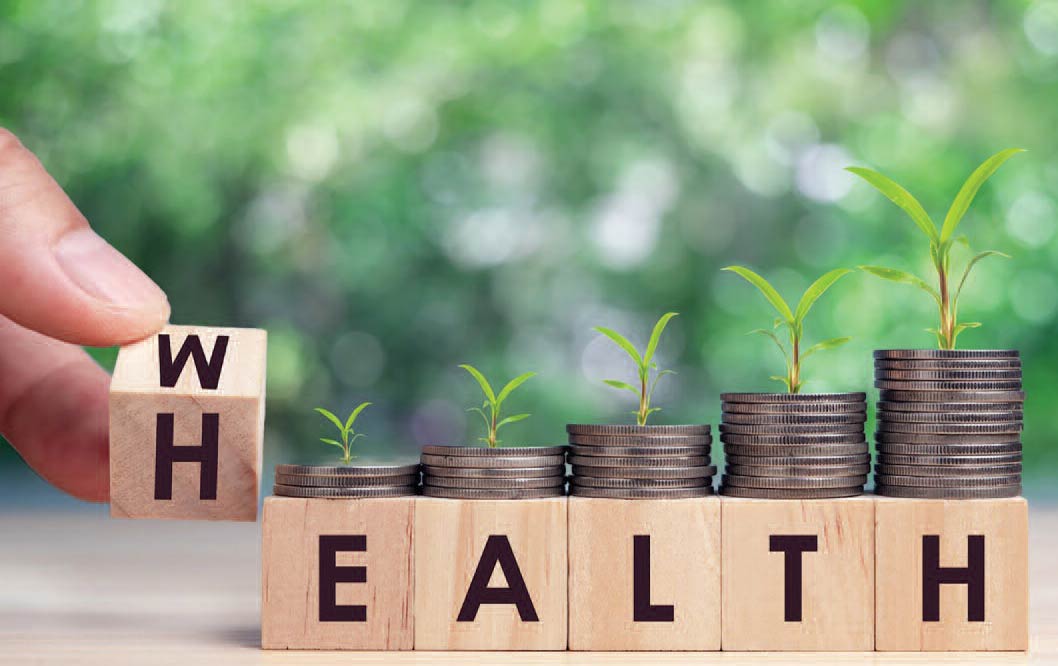How to eat well is, at its core, a very simple concept: eat plenty of fruits and vegetables, drink lots of water and avoid sugary, fried and highly-processed junk foods. Yet judging from current statistics that claim 2 out of 3 Americans are either overweight or obese, evidently it is not easy at all. In fact, it’s almost as if we have dedicated ourselves to eating poorly, shelling out millions of dollars each year for programs, pills, powders, puddings and pink drinks that promise longevity and weight loss, as long as you keep purchasing their ‘miracle’ products. And instead of getting thinner and in better shape, we are moving in the opposite direction.
For every one way to eat well, humans have created dozens of ways to do it badly. At times it feels that as a society we have become laser-focused on making sure we try all of the latter. Cabbage is a great vegetable, packed with nutrients and vitamins (as are most vegetables), but it doesn’t mean you should eat it exclusively as soup to lose weight. Lean, grassfed, pasture-raised meat when eaten in moderation, can provide protein and essential vitamins, but a carnivore diet void of fruits, vegetables, legumes, whole grains, nuts, and seeds—which are the cornerstone of every healthiest, longest-lived community on the planet— is baffling, to say the least.
This phenomenon of ‘doing everything but’ what we know to be the simple solution happens because of our endless search for the easy way out. In other words, people want a quick fix for a simple solution, but the simple solution is anything but quick.
Meanwhile, the actual miracle ingredients for a life relatively free of chronic disease are sitting quietly in the produce section of your grocery store or beaming brightly from the stands of a local farmers market. They lack glossy colored labels proclaiming health benefits or added vitamins, a list of added ingredients which sound like a chemistry experiment, nor a loveable cartoon character telling kids they taste G-R-R-R-E-A-T! And yet within their nucleus, mitochondria and chloroplasts, lies the DNA material that all animals instinctively know how to access for optimal health and survival, with the exception of 21st century homo sapiens.
Almost all of the leading chronic diseases that are killing us are pretty much caused by our poor use of forks, feet and fingers. We shun prevention and instead opt for pharmaceuticals via a “pill for every ill” mentality. Sadly, the day we change our diet is usually the day the doctor tells us our current diet caused our disease.
An ounce of prevention is actually worth way more than ten pounds of cure when it comes to also preventing other chronic, debilitating diseases like cancer, Type 2 Diabetes or even Alzheimers. How can we claim that eating healthy is too ‘hard’ or ‘expensive’ when recovering from a triple bypass open heart surgery or enduring months of chemotherapy is most assuredly ‘harder’ and ‘more costly’ – as is kidney dialysis, blindness, limb amputations or experiencing the devastating cognitive decline of a loved one.
The number one killer for the past century – heart disease – can be prevented and even reversed by a predominantly plant-based diet rich in those beautiful fruits, veggies, legumes, nuts and seeds aforementioned. The science behind this is so compelling that in 2013, Kaiser Permanente, the largest HMO in the United States with 182,000 employees, urged its 17,000 physicians to recommend plant-based diets to their patients. This special report in the Permanente Journal noted that plant-based diets “may be especially beneficial for those with obesity, Type 2 diabetes, high blood pressure, lipid disorders, or cardiovascular disease.”
Type 2 diabetes was originally called ‘adult onset diabetes’ because literally, only adults used to develop it. Now, according to the Centers for Disease Control and Prevention, 1 in 3 children born in 2000 in the United States will become diabetic. The odds are higher for African American and Hispanic children as nearly 50% of them will develop diabetes.
Smart use of forks means eating REAL food, remembering that the further away we get from whole foods, the sicker we become. Good use of feet means moving our bodies, as frequently as we can and with proper intensity and purpose. Proper use of fingers means keeping cigarettes and drugs from reaching our mouths and reducing or eliminating alcohol, also a known carcinogen.
If any of what I’ve been saying makes sense to you, I highly recommend the book, The Truth About Food: Why Pandas Eat Bamboo and People Get Bamboozled. Its author, David L. Katz, MD, MPH, is a specialist in Preventive Medicine and Lifestyle Medicine, with particular expertise in nutrition. He earned his BA at Dartmouth College, his MD at the Albert Einstein College of Medicine; and his MPH from the Yale University School of Public Health. A great deal of what I’ve written here has been generally paraphrased from the 754 pages he wrote to help us “differentiate truth from the exploitative ‘lies’ that abound.”
Some of my favorite excerpts are when Katz describes treating health like wealth, noting that we should make getting it a priority, invest in it to secure a better future, and value it while gaining it – not just after we’d lost it. He also adds, “If it sounds too good to be true, it is. If it’s the weight-loss or health equivalent of a get-rich-quick scheme, it’s the stuff of sitcoms. No serious person should take it seriously… It would be like cashing out your 401(k) to show up at the special event in a flashy car you can’t really afford. It would feel good for a day, and bad for the rest of your life. We know this, and responsible people don’t treat wealth this way. But we mortgage health to the point of foreclosure as a matter of routine.”
The book description calls The Truth About Food “an invitation to add years to your life and life to your years; to love the food that loves you back for a lifetime; and to enjoy the comforting confidence that only comes from genuine understanding.” It would be a compelling read even if it didn’t reaffirm that if eating well was easy, we wouldn’t need a 2-½ lb. book to tell us how to do it.
Things that are simple are not always easy, nor perhaps, should they be. Our greatest rewards usually come from our greatest efforts and as it turns out, health is not like wealth. It is eminently MORE important. Just ask anyone who has one but not the other. The time to start investing is now.
Cindi is President and Founder of The Noble Path Foundation, a 501(c)(3) located in San Clemente, CA, dedicated to helping the youth of our communities reach their highest potential via healthy nutrition and lifestyle choices, safe and fun social activities, and motivational mentoring. For sources and links to the statistics mentioned in this article, please visit our website and search for the article under our blog at www.thenoblepathfoundation.org.


